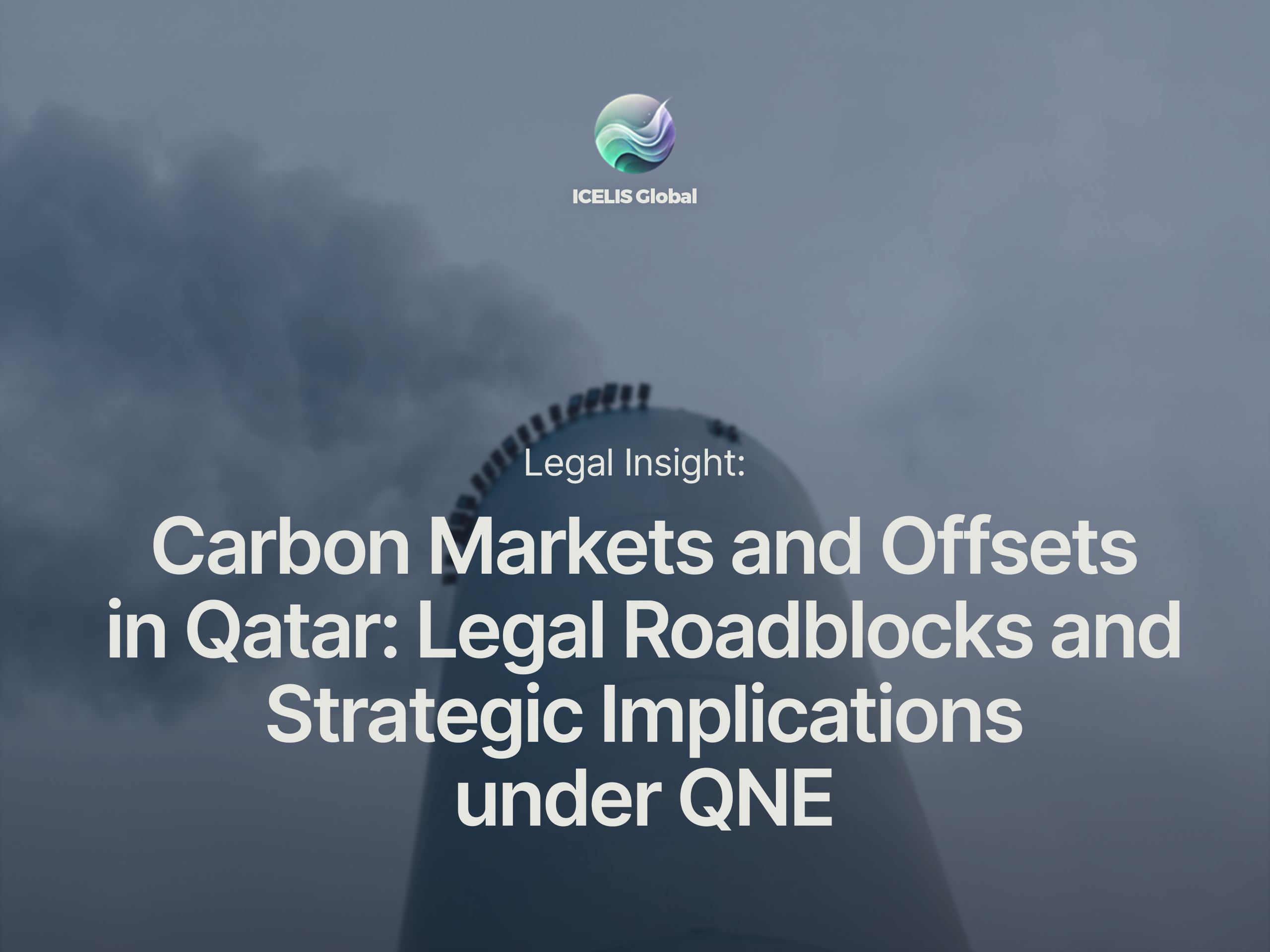Introduction
Qatar is at a pivotal crossroads in its journey toward environmental sustainability. With the launch of the Qatar National Environment and Climate Change Strategy (QNE), the nation has committed to reducing greenhouse gas emissions and aligning with global climate goals. One of the critical tools in this transformation is the development of robust carbon markets and carbon offsets systems. However, realizing this ambition requires a well-defined legal and regulatory framework.
The Promise and Complexity of Carbon Markets
Carbon markets function by placing a price on carbon emissions, allowing companies and governments to buy and sell emissions allowances or offsets. These mechanisms incentivize lower emissions while creating financial opportunities for those who adopt cleaner technologies. In Qatar, this approach aligns strategically with its vision to diversify its economy and reduce its carbon footprint while maintaining energy sector leadership.
Yet, implementing such markets in Qatar is far from straightforward. It demands a clear legal infrastructure that not only legitimizes carbon credit transactions but also governs how these credits are generated, verified, and traded.
Legal and Regulatory Landscape in Qatar
Currently, Qatar lacks a fully established legislative framework specifically tailored to carbon trading and voluntary offset markets. However, significant steps are being taken.
To build an effective carbon market, Qatar must develop:
1. Regulatory Certainty: Defining carbon as a tradeable commodity and setting national carbon pricing policies
2. Monitoring, Reporting, and Verification (MRV) systems: These ensure the transparency and accuracy of emissions reductions.
3. Contractual Standards: For voluntary offsets, legal contracts must outline ownership rights, project durations, and liabilities.
4. Alignment with International Protocols: Qatar’s frameworks must be consistent with Article 6 of the Paris Agreement, facilitating cross-border carbon credit trading.
Voluntary Offsets and Corporate Responsibility
Voluntary carbon offsets play a crucial role for companies aiming to meet ESG (Environmental, Social, Governance) targets. Qatar-based enterprises, particularly in energy-intensive sectors, are showing growing interest in offsetting residual emissions through reforestation projects, renewable energy investments, and carbon capture initiatives.
But without standardized guidelines, there’s a risk of inconsistency or “greenwashing.” Therefore, establishing legal enforceability and third-party verification mechanisms is essential for the credibility of these offsets.
Regional Implications and Market Integration
Qatar’s approach will also influence broader Middle Eastern climate policy. By setting up a model legal infrastructure, it could serve as a blueprint for other Gulf Cooperation Council (GCC) countries. Additionally, regional harmonization of standards could enable a unified carbon trading platform across the GCC, enhancing liquidity and investment in clean technology.
Conclusion
Qatar’s journey to establishing viable carbon markets and carbon offsets mechanisms is closely tied to its regulatory evolution. The Qatar National Environment and Climate Change Strategy offers a strategic vision, but its success hinges on swift, deliberate legal reform. If executed well, Qatar could position itself as a regional pioneer in climate governance and sustainable development.
